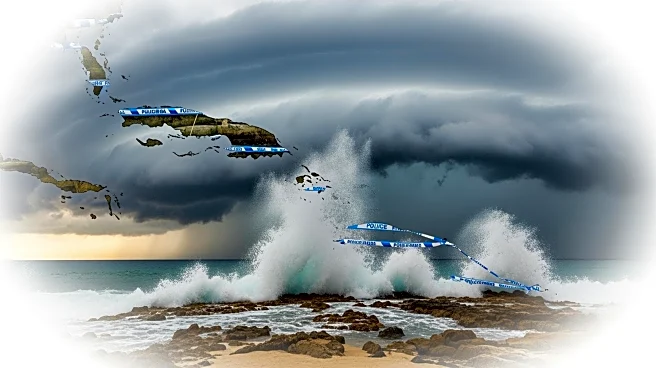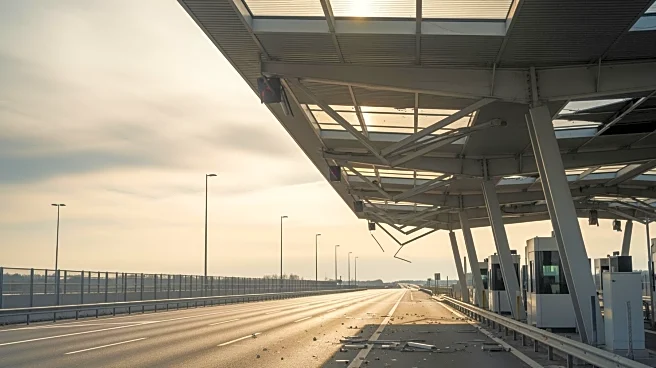What's Happening?
Hurricane Melissa has rapidly intensified into a Category 3 storm, posing a significant threat to the northern Caribbean. The U.S. National Hurricane Center reports that Melissa is currently located about 125 miles south-southeast of Kingston, Jamaica,
with maximum sustained winds of 115 mph. The storm is moving west at a slow pace of 3 mph, which is expected to result in prolonged heavy rainfall and potential flooding. Jamaica, Haiti, and the Dominican Republic are forecasted to experience torrential rains through Monday, with Jamaica potentially receiving up to 25 inches of rain. The Tiburon peninsula in Haiti could see up to 35 inches. The Cuban government has issued a hurricane watch for several provinces, anticipating the storm's impact by early Wednesday. Authorities in Jamaica have activated over 650 shelters and are urging residents to take the threat seriously.
Why It's Important?
The intensification of Hurricane Melissa poses a severe risk to the Caribbean region, particularly in terms of flooding and landslides. The slow movement of the storm increases the likelihood of prolonged exposure to damaging winds and heavy rainfall, which could lead to significant infrastructure damage and displacement of communities. Jamaica's Prime Minister has emphasized the need for preparedness, highlighting the potential for long-duration power outages and communication disruptions. The storm's impact on Haiti is particularly concerning given the country's vulnerability to natural disasters and existing socio-economic challenges. The broader implications include potential disruptions to travel and trade in the region, as well as the strain on emergency response systems.
What's Next?
As Hurricane Melissa continues to move slowly, authorities in the affected regions are preparing for its potential escalation to Category 4 status by Tuesday. Jamaica's Norman Manley International Airport is set to close, and emergency services are on high alert to respond to any arising needs. The storm's trajectory suggests it will impact eastern Cuba by Wednesday, prompting further preparations and potential evacuations. The Bahamas and Turks and Caicos Islands are also monitoring the storm's progress, with possible tropical storm conditions expected early next week. The situation remains dynamic, with ongoing assessments required to address the evolving threat.
Beyond the Headlines
The slow-moving nature of Hurricane Melissa highlights the challenges of forecasting and responding to such storms, particularly in regions with limited resources. The potential for catastrophic flooding raises ethical considerations regarding the adequacy of international aid and support for affected countries. Long-term implications may include increased scrutiny on climate change and its role in intensifying weather patterns, prompting discussions on sustainable development and disaster preparedness.















